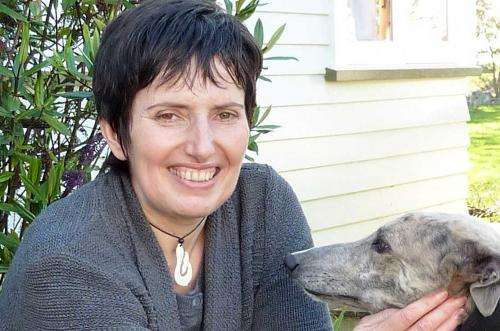Dr Heather Heron-Speirs
Downplay it. Joke about it. Block it out and keep going. These are common reactions of Kiwi men diagnosed with cancer, says a Massey University psychology researcher.
Dr Heather Heron-Speirs' PhD study reveals gaps in the way the health system caters for men's emotional needs. She interviewed men with cancer to find out how they coped emotionally with diagnosis and the impact of treatment on their sex lives, their ability to work, play sport and to fulfill family expectations.
In her doctoral thesis, titled Understanding the cancer-related distress and coping of men from provincial New Zealand: 'Bullet proof' meets radical prostatectomy, she reveals how traditional masculine norms – strong, silent, invulnerable – are a barrier to men seeking information they need to fully understand the disease and treatment impacts.
Her study has sparked interest among medical and support staff who concur with her findings that diagnostic and treatment services need an overhaul so they are better placed to help men "feel more in control, through better understanding of what is happening."
Men with cancer, she found, cope by being active and practical, and avoiding self-pity. But they typically find it harder to acknowledge and express feelings and fears about cancer and its implications, which can include dying.
"There is," she says, "an inherent clash between being ill and being a man."
She interviewed 27 men, including six Māori, from regions with lower socio-economic statistics. Sharing her own experience of cancer diagnosis and treatment helped create a rapport of trust and openness, she says. s
Compared with women, men are less likely to seek counselling from psycho-social services even if they are distressed about their diagnosis and the changes it will bring to their relationships, work and identity.
"Men and women experience cancer differently. More men than women get cancer, more men than women die from cancer, and men usually adapt less well than women after a cancer diagnosis," she says.
Her research offers new insights on a topical issue that is part of a wave of increasing awareness of men's health needs. Along with a raft of researchers and health professionals, Dr Heron-Speirs recently contributed to a Central Cancer Network (a national network encompassing seven district health boards and numerous health providers and agencies) review of psycho-social service delivery for cancer patients.
She says user-friendly information needs to replace medical jargon in brochures, hospital noticeboards, signs and websites, as well as in conversations between clinician and patient. Even the terms 'oncology' and 'palliative' can be mystifying or misunderstood to the lay person with little previous experience of cancer, she says.
In a presentation she gives to cancer clinicians, she suggests easy-to-grasp analogies, for example, comparing treating cancer to eliminating gorse. "You grub it out (surgery), burn it out (radiotherapy) or poison it (chemotherapy).
Another male tactic for coping with a cancer diagnosis is to minimise the reality through understatement, humour or colloquial cliché. "For example, one participant was diagnosed with diabetes, stroke and cancer together, and joked, "That weren't [sic] my best Christmas!", while another described the difficulties of arranging life-saving bone marrow donation as; 'a bit of a worry'.
She found that men who identified strongly with traditional gender roles were often emotionally isolated – even when they had a strongly supportive wife and family. "They felt it would be wrong to burden their loved ones with distressing information."
Compared with the Pakeha men, Māori had both disadvantages and advantages when facing cancer. Although disadvantaged by illiteracy, poverty, and a higher mortality rate, they had more flexibility in valued whanau roles as they got older – such as being mentors to the young – and more social and spiritual support.
A hierarchical medical system also alienates men, she says. Some tend to revere medical professionals and are reluctant to ask questions, either through fear of seeming ignorant, or through embarrassment at talking about sensitive subjects such as cancer-related sexual dysfunction.
She says research has shown that distress in men is difficult to measure because men forget or under-report symptoms. And though notions of masculinity are less rigid in younger generations, there's a persistent sense of shame about displays of "emotional weakness" by men in a society that socialises boys to 'be tough' and suppress negative emotion.
Provided by Massey University






















